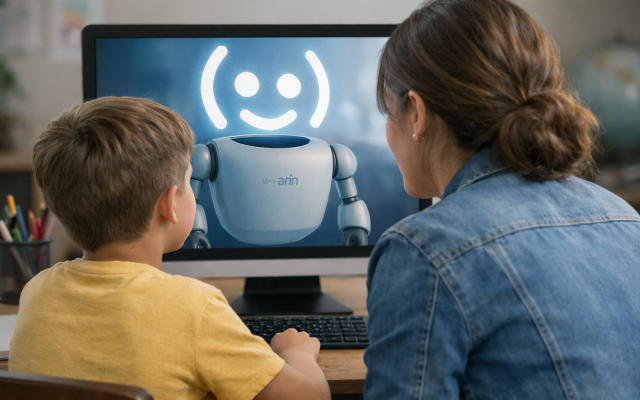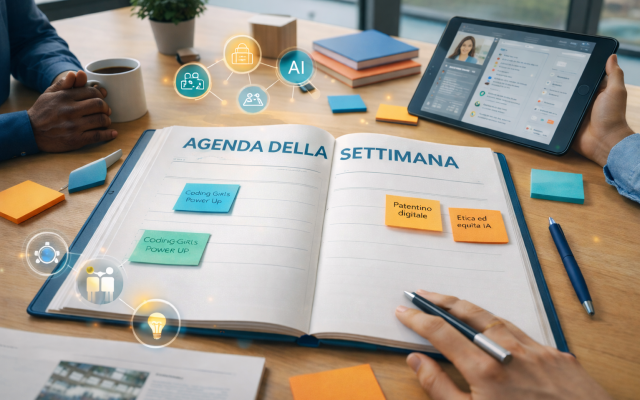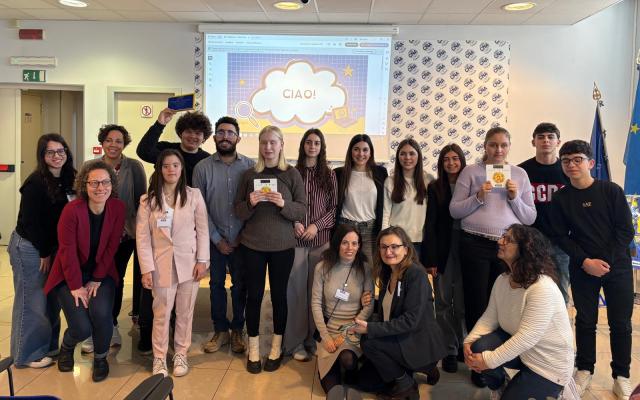4 min.
The course, which is reserved to the ten guests of the Casalotti facility for second reception, includes two weekly meetings (Tuesday and Thurday, 11:00 am - 1:00 pm) in the centre’s Internet lab. The main objective of the eight lessons is to provide attendees with the key tools to exploit the advantages provided by an Internet laboratory which they can freely use each afternoon and during the weekend. Centro Enea guests will learn to navigate the web to find public transport, write their CVs and follow their bureaucratic applications on-line.
The original character of the FMD’s course at the Centro Enea is not only its practical lab-approach methodology, but also the choice to employ Mosa Daw Elbit as the teacher, a former "excellent” guest of the facility.
This is Mosa’s story as published in Digital Technology as a Tool for Refugee Integration. The Rome Centro Enea Model (Fondazione Mondo Digitale, Rome 2010):
Mosa Daw Elbit was born in 1975 in Sudan where he graduated with a University degree in Administration and earned a Computer Diploma (Introduction to PCs, Word, Excel, Powerpoint). In Sudan, he worked as a high school teacher. As a matter of fact, he taught all subjects to make up for the lack of teachers. Moreover, he also worked as a sales director and accountant for a car retailer. he arrived in Italy in November 2006. In 2007, he studied Italian thanks to funds set aside by the European Union, received a European diploma as a welder and also studied AutoCAD. In 2008, Mosa arrived at the Centro Enea, where he studied advanced Italian and took a Microsoft Digital Literacy Computer course. During this period, he also worked at McDonalds, Sda Express and at a PIM supermarket. At the end of his stay at the Centro Enea, Mosa was hired by the FMD as an assistant for the very facility he had just studied at. Mosa manages and helps the guests at the e-Café and from the summer of 2009 has begun to hold introductory courses on the use of Internet. In April 2010, he began teach a basic computer course together with Mirella Gentile. Mirella, who holds a degree in Mathematics, was a computer teacher at the liceo scientifico Peano di Roma (via Francesco Morandini), one of the schools involved in the Grandparents on the Internet Project (now TeleMouse) since the Fondazione Mondo Digitale devised it. Mirella retired in 2008, but she is currently developing an Internet site to provide information on the Computer Courses held by the FMD at the Centro Enea. It’s interesting to Note how Mirella’s didactic competence fits in with the experience of Mosa, a political refugee who understands the practical learning needs of other refugees.
In general, Mosa likes to help others. Moreover, his work for the FMD enriches his computer and professional knowledge and he hopes to become a technical assistance expert. The computer work is perfect for him, but in the meantime he is also cultivating another dream. He wants to earn a Masters Degree in Administration. To obtain this objective, however, he knows that he must improve his Italian.
If Mosa were to give advice to other political refugees to become successfully integrated, he would say that it’s important to learn how to speak the language fluently and take both computer and professional courses. The use of Internet and Computers, in particular, helps refugees to keep in contact with their friends and relatives as well as helping them to look for work. According to Mosa, refugees arriving in Italy think that it will be easy to find a job. In reality, however, the job market is difficult here, too, and it takes a couple of years to acquire the necessary skills. In fact, not only Italy, but all of Europe is a completely different from Africa. Rome, in particular, appears to them as a crowded city in which it is hard to find a space. However, if one studies, he can hope to find a job.



